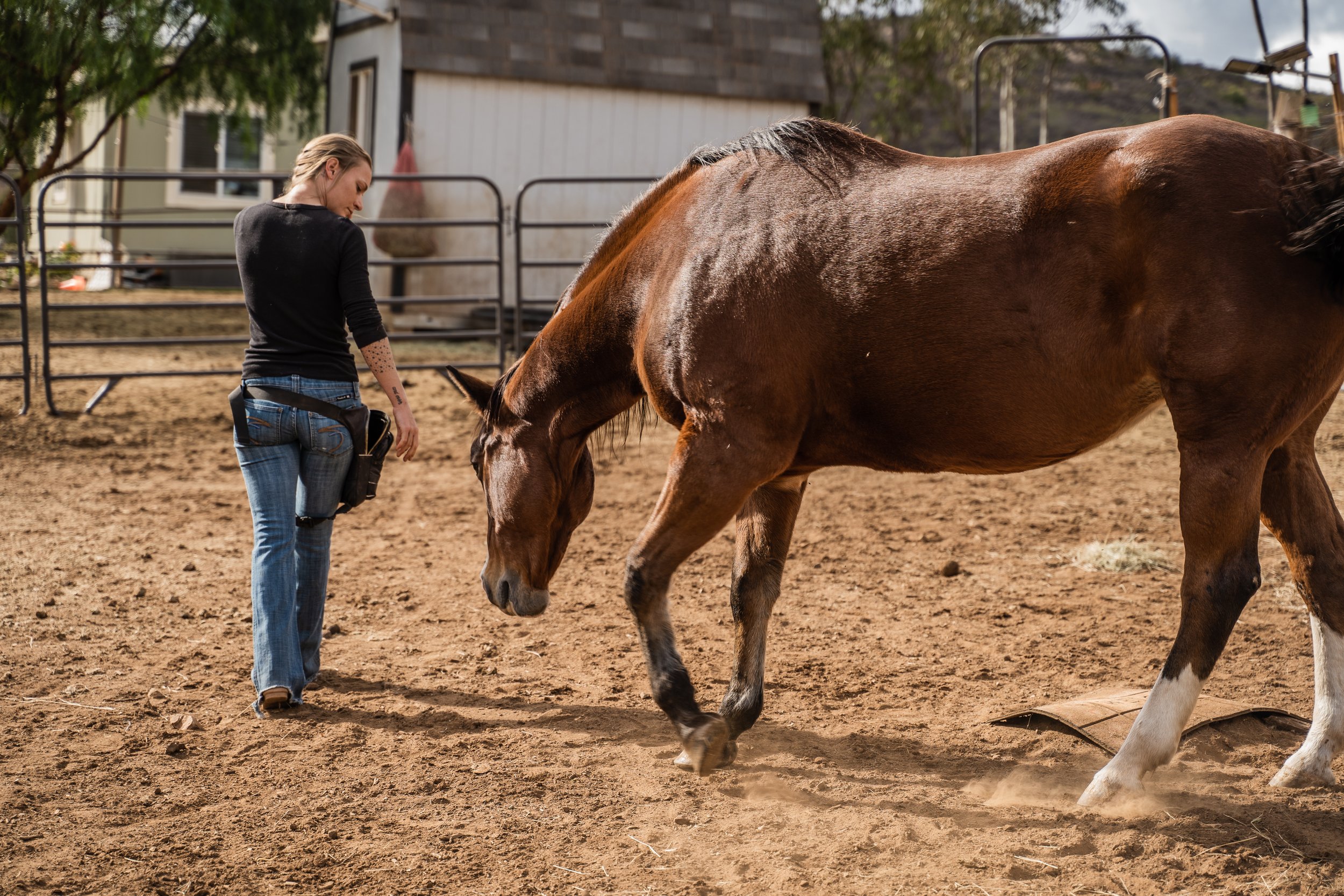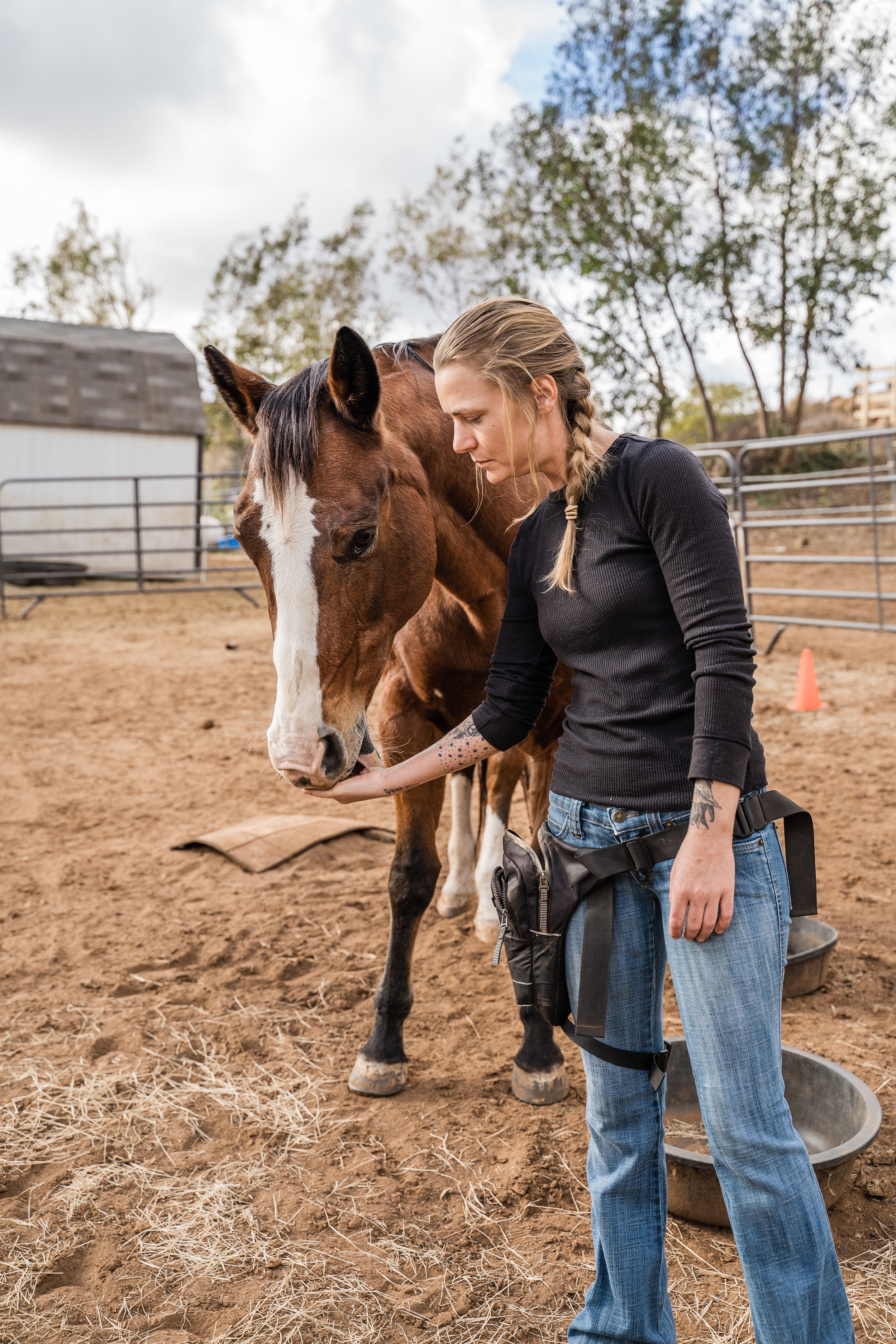
What is R+?
Positive Reinforcement commonly abbreviated to R+,
Is a training technique that involves rewarding a desired behavior so that we may see that behavior more often. R+ is the ideology that Treat Them R+ght Rescue was created around! A lot of traditional styles of training in both the dog and horse worlds involve punishing unwanted behaviors, or using pain inducing tools, to teach what NOT to do. While these methods can be effective, we believe that effectiveness should not be the only thing that matters.
The animals experience with us is what is most important at TTR+. We prefer to offer the animals things that they find pleasant, such as treats, scratches, or toys they enjoy, as a reward to teach them what we DO want them to do. This allows the animal to learn the same things that would be taught with those punishment based training styles, but to learn them while enjoying the experience.
By using Positive Reinforcement, force-free, and cooperative care methods, the animals at TTR+ are establishing a positive association with humans. They interact with us, participate in veterinary procedures, essential grooming practices, and more because they enjoy it, not because unpleasant things happen if they do not.
Scientifically speaking, Positive Reinforcement is a part of operant conditioning. There are four methods of behavior modification using operant conditioning. All methods are effective at altering behavior and teaching new skills, but here at TTR+, we choose to use the least invasive, minimally aversive techniques as often as we can. See the chart below featuring Fed Up Fred, for a quick look at the four quadrants of operant conditioning. Feel free to contact us if you have any questions about positive reinforcement or the four quadrants!
We recognize that creating a pleasurable, safe, engaging environment and life experience can foster a positive mental state, encourage confidence and independence, as well as aid in physical health.
"One study found an aggressive response from the dog when people use positive punishment (Herron, Reisner, and Shofer 2009). For example, 11% of dogs were aggressive in response to the use of a prong or choke collar; 15% when they yelled no at the dog, and 43% when they hit or kicked the dog."
The American Kennel Club
The science behind..
Don't just take our word for it, click the quotes for more info!
Although most studies have been done with our canine companions, the science translates throughout all species.
"The use of aversives has fall out. Thanks to the involuntary learning of classical conditioning, dogs trained with unpleasant actions often associate those aversives with the trainer and the training process. These dogs don’t look forward to learning, they don’t want to try new things, and their bond with their owner is eroded."
Companion Animal Psychology
-Zazie Todd, PhD - Quote Source








